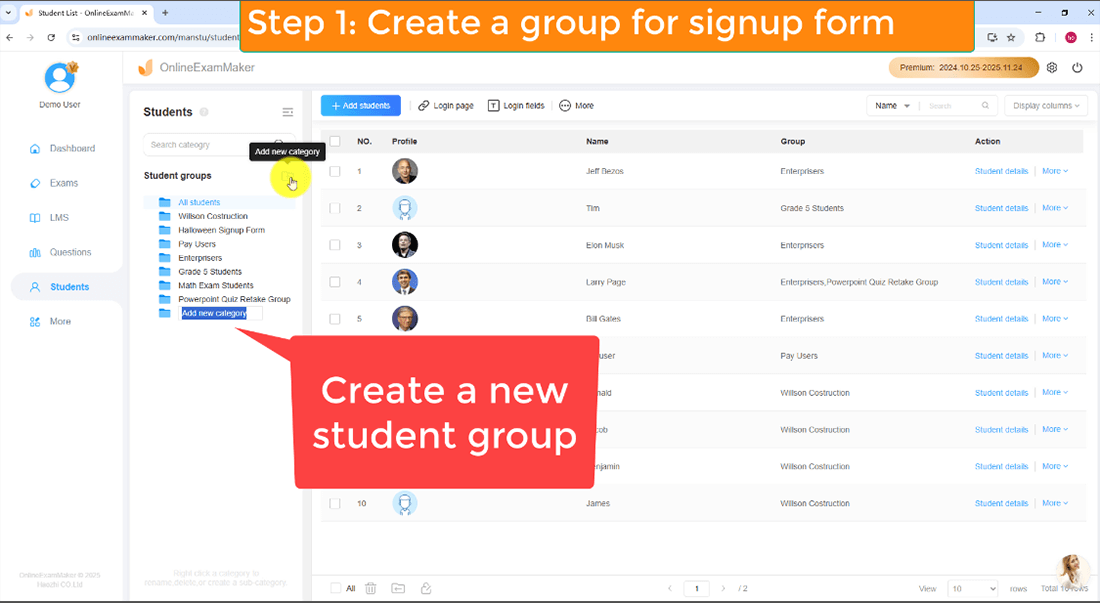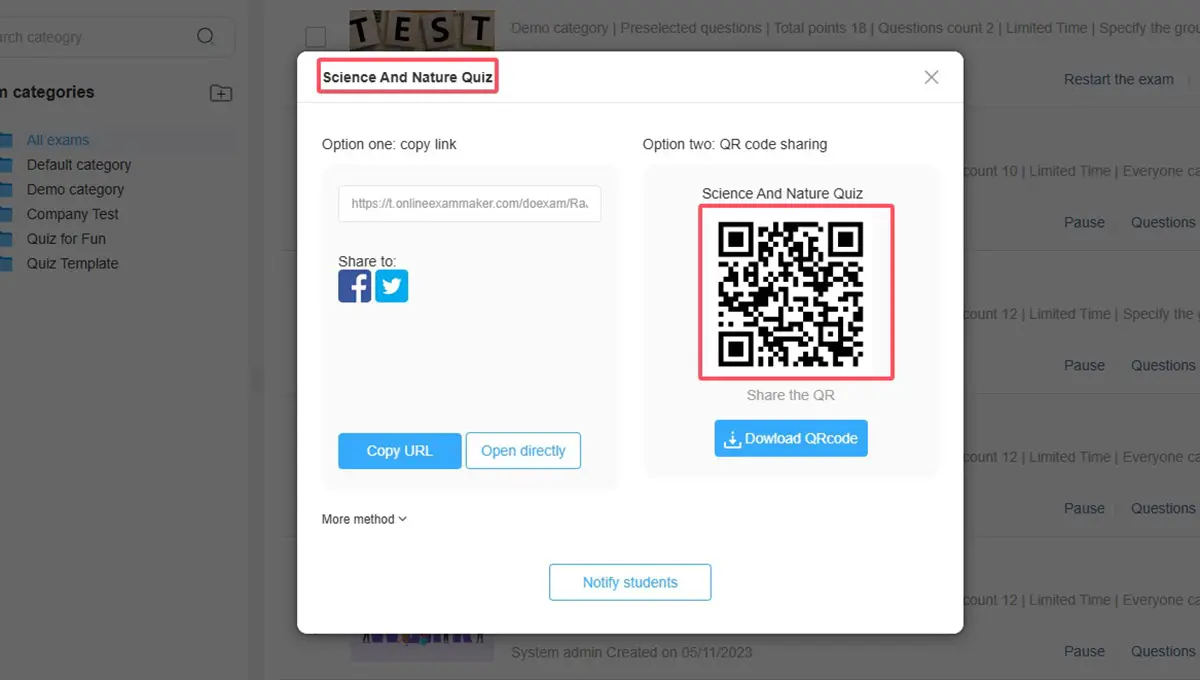Smartphone has become a universal tool, a gateway to information, entertainment, and communication, all neatly stowed away in a pocket. The general nature of mobile devices has influenced many aspects of our being, engagement and learning are no special cases. Of the new ways mobile technology is being used, one such example is the emergence of mobile quizzes – shortened, interactive tests delivered in real-time to users on their smartphones or tablet computers. These portable learning or engagement episodes are a dynamic, convenient alternative to the more traditional approaches, taking advantage of the native convenience and hands-on nature of mobile devices.
Mobile quizzes are not simply reduced desktop equivalents. They are crafted specifically for the mobile experience, considering such variables as screen size, touchscreen interaction, and usage in transit. Such native adaptability makes them highly versatile, used in a broad range of contexts from formal schooling and business training through advertising campaigns and individual development.
What attracts users is their potential to convey information or test comprehension in a stimulating, easily consumed manner, integrating themselves seamlessly into the user’s everyday activity. Whether a student reinforcing key concepts during their daily commute, a worker brushing up during a break period on new business policies, or a potential shopper browsing a brand for tailored suggestions, mobile quizzes are a potent, effective means of connecting, learning, and involving.
Moving further into the landscape of mobile quizzes, we’ll cover their varied use cases, study the best practices for delivering effective as well as interesting mobile quiz experiences, as well as know how they can be used strategically in a bid to power learning, engagement, or even drive conversion in diverse industries. The potential in pocket-sized assessment is immense, and in a better grasp of how it can be used effectively, we are becoming ever more reliant.
- What Are Mobile Quizzes?
- 6 Use Cases Of Mobile Quizzes For Users
- Best Practices to Conduct Mobile Quizzes
- Increase Conversion on Mobile Using An Interactive Quiz Format
- Enhance The Mobile Quiz Experience with OnlineExamMaker
What Are Mobile Quizzes?
Mobile quizzes are short, dynamic assessments or tests of knowledge specifically crafted for mobile delivery and interaction, respectively, in smartphones, tablets, or similar devices. In contrast with paper-based or desktop-focused quizzes, mobile quizzes are defined by their mobile-centric design, in consideration of lower-sized screens, tap-based inputs, and the frequent on-the-move nature of their usage. They are usually a sequence of questions in a friendly mobile user interface, frequently leveraging multimedia such as images, sound, and even short video clips designed to maximize engagement and appeal to varied learning strategies.
Key features of mobile quizzes include their conciseness and specificity. Owing to the nature of mobile consumption, users tend to appreciate shorter, more concentrated content. Mobile quizzes become shorter, addressing specific subjects or learning outcomes instead of covering wide-ranging subjects. Interactiveness is also a characteristic feature; mobile quizzes actually involve the user through a variety of query formats such as multiple-choice, true/false, matching, fill-in-the-blanks, as well as interactive components such as drag-and-drop or image selection.
Moreover, mobile quizzes frequently offer instant feedback at the end of each query or at the completion of the quiz, giving correct or incorrect responses, or explanations, in order to solidify learning or contextualize the information. The ease of mobility and access of the mobile device implies users can take these quizzes anywhere, at any time, thus facilitating learning and assessment as a flexible, convenient experience. Mobile quizzes utilize native features of smartphones such as push notifications for alerts or progress status, as well as frequently integrating smoothly with mobile app or web browsers for convenient access. Designing for these quizzes focuses on a seamless, intuitive user experience within compact-sized touchscreens, ensuring users can effectively, rapidly interact with the information.
Create Your Next Quiz/Exam with OnlineExamMaker
6 Use Cases Of Mobile Quizzes For Users
Mobile quizzes have found diverse applications across various sectors, offering valuable benefits to users in different contexts.
1. Education and Learning

Students might use mobile quizzes to conduct rapid checks of their knowledge following a lecture, rehearse key concepts while commuting, or study for exams in a lively, interactive way. Teachers might use mobile quizzes for assessment, measuring student comprehension in real-time as well as discovering the places in which they might more clearly clarify things. The mobility makes learning and revision possible anywhere, anytime.
2. Corporate Onboarding and Training
Businesses can use mobile quizzes to onboard employees with new policy, procedures, or product training in a convenient, trackable manner. Existing employees can use quizzes in the hiring process of new hires as a means of evaluating their comprehension of the firm’s culture, as well as vital information. The bite-sized nature allows for consumption in manageable portions, accommodating tight schedules.
3. Marketing and Lead Generation
Businesses can use interactive mobile quizzes in order to engage potential customers, give them personalized recommendations according to their responses, and gather valuable lead data. Interactive quizzes such as “What kind of traveller are you?” or “What’s your ideal skin care routine?” can be enjoyable as well as informative while discreetly gathering data.
4. Personal Development and Self-Evaluation
Users can evaluate their own knowledge in a subject of their choice, monitor their learning progress in acquiring new skills, or get to know more about themselves or their likes/dislikes through entertaining quizzes. Language learning quizzes or personality quizzes are good examples.
5. Entertainment and Interaction
Mobile quizzes can be a source of enjoyment, a way of killing time, testing general knowledge, or competing in trivia challenges. There are numerous apps and websites with a large selection of enjoyable quizzes spanning multiple topics for use by casual users.
6. Wellness and Health
Quizzes can be employed to inform people about health issues, evaluate their habits, or monitor their advance in health programs. Nutrition, exercise, or mental health quizzes can offer useful self-appraisal and promote healthier habits.
Best Practices to Conduct Mobile Quizzes
In order to design effective mobile quiz experiences, follow these best practices:
Mobile users are short-attentioned. Make the quizzes concise, related to a single topic or learning objective, and able to be taken quickly (ideally in a matter of minutes).
Make It Mobile Interface optimal

Make the design of the quiz highly responsive, scaling smoothly across varying screen sizes and orientations. Incorporate clear, readable fonts, proper spacing, and large enough targets for the user’s fingers for convenient interaction.
Engage with varied question formats
Use a mix of question types beyond basic multiple-choice, i.e., use selection of images, drag-and-drop, matching, etc., as well as short video responses wherever they are applicable.
Provide Immediate Meaningful Feedback
Give immediate feedback for each question or after completing the quiz. Describe the reasons for correct or incorrect responses in order to reinforce learning or give proper context.
Gamify The Experience
Use progress bars, points, badges, leaderboards, and timers, among other elements, to drive motivation and enhance the enjoyment of the quiz.
Help Users Navigate with Ease
Make it intuitive for users to navigate through the quiz with clear-cut “Next” and “Previous” buttons. Show users visually how much more time the quiz will take by indicating the progress.
Collect Data Strategically
If generating leads or gathering data are the purpose of the quiz, ask for applicable data at the proper places, respecting users’ privacy while refraining from overly intrusive requests.
Test Rigorously Across Various Devices
Test your mobile quiz extensively across a variety of smartphones and tablets running various operating systems in advance of launch so that it looks good and behaves appropriately across all of them.
Increase Conversion on Mobile Using An Interactive Quiz Format
Interactive quizzes are a strong mechanism for boosting conversion rates in mobile, as they bring more engagement and customization when compared to static content or forms. The following is how you can use interactive quizzes in your mobile platform in order to drive more conversions:
Provide Personalized Value
Create tests or quizzes that give users results, suggestions, or facts related specifically to their answers. This intrinsic value proposition engages users more and makes the results more interesting and applicable. For instance, a “Find Your Ideal Product” quiz can actually drive users to the items they are most likely to buy.
Capturing Leads Organically
Place lead capture forms throughout the quiz process, ideally before showing the ultimate results.17 Once users are this far, they are already invested in the results and more likely to share their contact information in return for their customized results or additional details.
Segment Your Audience

The information users submit through the quiz can be used as segmentation data. This can help segment leads by their interests, needs, or preferences, so you can refine your follow-up marketing with higher conversion rates.
Drive Targeted Traffic
Directly link to applicable product pages, services, or pieces of content based on each user’s quiz answers. This establishes a seamless, personalized experience from engagement through potential conversion, furthering the chances of a sale or intended action.
Drive Engagement and Time on Site
Interactive quizzes are more interesting compared to static content, so they make users spend more time engaging with your brand from their mobile phones. Increased engagement may lead to more brand awareness, as well as a higher potential for conversion in the future.
Make It Shareable

Create quizzes with surprising or intriguing results that people are likely to share across social networks. This viral sharing can drive a large portion of your traffic and attract new potential users to your mobile platform.
Align with your brand and objectives
Make sure the subject matter, tone, and design of your interactive quiz are consistent with your brand identity and your marketing objectives. The quiz must be a true extension of your brand experience.
By following best practices in mobile quiz design, such as keeping the content concise and centered, optimizing for the mobile interface, adding multimedia and game design, as well as delivering timely feedback, it is possible to build effective, entertaining, and engaging experiences capable of reaching and maintaining user attention.
In addition, the strategic use of interactive quizzes on mobile devices has tremendous potential for increasing conversion rates. By delivering individualized value, organically capturing leads, segmenting audiences, and driving targeted traffic, companies can convert interesting quiz conversations into concrete results. The secret lies in crafting quizzes that not only inform or entertain but also redirect users toward preferred outcomes, all within the comfortable and interactive setting of their mobile device.
And as mobile technology continues to advance, becoming a larger part of our daily existence, the strength of properly designed, well-planned mobile quizzes will continue to grow, making them an ever-more valuable asset for teachers, companies, and individuals trying to connect, engage, and meet their goals in a mobile-first world. The power of mobile quizzes in the pocket is really opening up new horizons of engagement and effect.
Enhance The Mobile Quiz Experience with OnlineExamMaker
OnlineExamMaker stands out as a versatile tool for creating customized mobile-friendly quizzes. With its intuitive interface, teachers, businesses, and content creators can design dynamic, interactive assessments that are optimized for mobile devices. Whether you’re conducting a quick knowledge check for students, engaging employees in training modules, or gathering leads through a marketing quiz, the software allows for easy integration of multimedia elements like images, videos, and audio.
OnlineExamMaker supports a range of question types, from multiple-choice to drag-and-drop, ensuring a highly engaging and effective quiz-taking experience. As mobile devices become an integral part of education, training, and marketing strategies, OnlineExamMaker empowers users to design mobile-first quizzes that maximize engagement, streamline assessments, and drive results.
Create Your Next Quiz/Exam with OnlineExamMaker